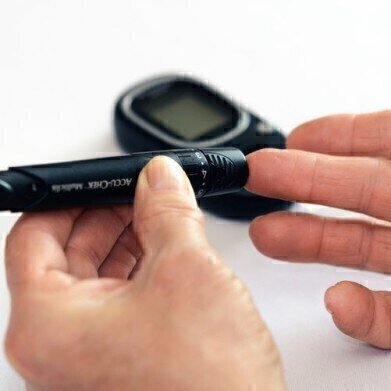Bioanalytical
Detecting Diabetes with a Breath Test - Chromatography Steps In
Jan 24 2020
In the UK, the number of people that have been diagnosed with diabetes has more than doubled over the last 20 years. Figures suggest that around 3.8 million people in the UK have some form of diabetes - 90% have Type 2, 8% have Type 1 and 2% have rarer types. It is the increase in obesity that is driving the rapid increase in the number of people living with Type 2 diabetes.
It is vital that people can get an early diagnosis of diabetes before potentially fatal complications can set in. The current tests for diabetes involve blood tests which can be painful, invasive and time consuming. A team of researchers from South Africa have recently published the results of a study into the use of chemicals in breath to diagnose diabetes. The paper in the journal Diagnostics - Blood Ketone Bodies and Breath Acetone Analysis and Their Correlations in Type 2 Diabetes Mellitus - describes how chromatography can be used to assess whether a simple, non-invasive breath test can detect Type 2 diabetes mellitus.
Breathing out volatiles
Samples taken from patients can contain volatile organic compounds or VOCs. These compounds can in some cases be associated with a specific reaction or metabolic pathway that occurs in the body. When this happens, the metabolites and VOCs can be used as biomarkers to indicate an underlying condition or disease. This is the basis behind blood tests in hospital or checks for bowel cancer in faecal samples.
But researchers are searching for simpler and quicker checks on biomarkers that do not rely on invasive tests - and breath tests are one of the easiest to administer. We already routinely use breath tests to check biomarkers - think about roadside breath tests used to check for drink driving - but now researchers in South Africa are testing to see if they can be used for diabetes.
Chromatography analyses your breath
There are many different VOCs in exhaled human breath, but one of the most abundant is acetone. Acetone in breath has already been studied as a biomarker for diabetes and other physiological cases for many years. But in most cases the studies have been used to show a link between breath acetone and plasma glucose for Type 1 diabetes. The scientists behind the study referenced above state that no such observations have been obtained between acetone and Type 2 diabetes.
The researchers collected breath samples from 30 patients with Type 2 diabetes and 28 healthy controls and analysed them using headspace solid-phase microextraction and gas chromatography-mass spectromentry (HS-SPME/GC-MS). The use of MS to analyse complex samples is discussed in the article, Recent Advances to Conquer Analytical Challenges with High-Resolution, Accurate Mass Spectrometry.
They compared the results with blood samples taken from the patients and found that high ketone plasma concentrations correlated with higher breath acetone levels. The work suggests that non-invasive breath testing for diabetes could be an alternative to blood testing.
Events
Jan 20 2025 Amsterdam, Netherlands
Feb 03 2025 Dubai, UAE
Feb 05 2025 Guangzhou, China
Mar 01 2025 Boston, MA, USA
Mar 04 2025 Berlin, Germany














